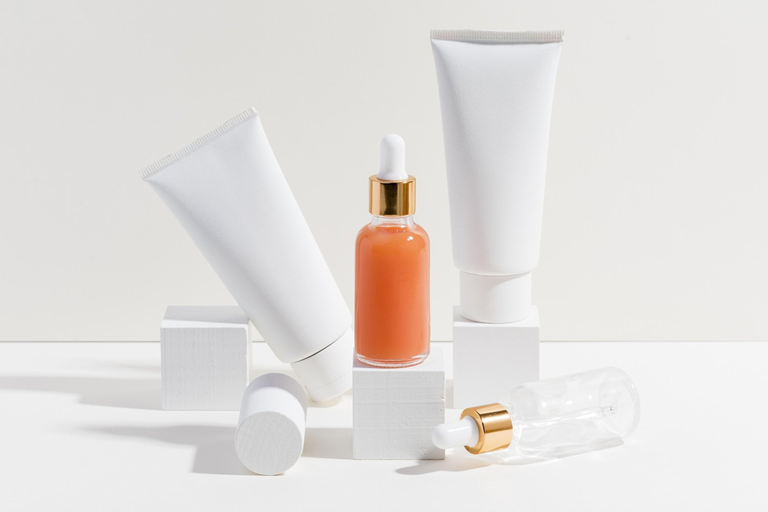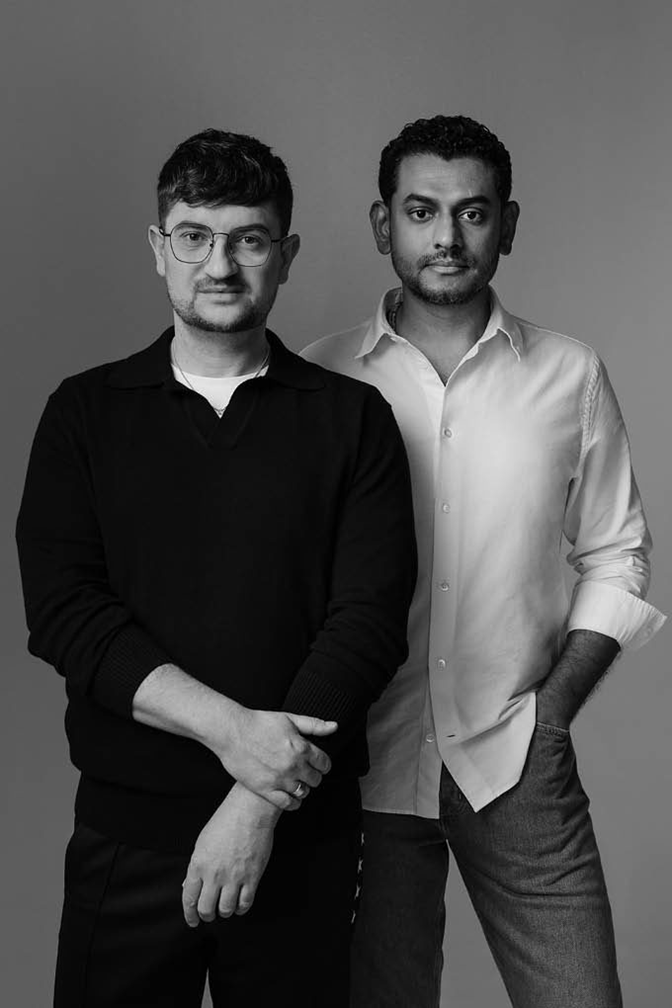14 September 2024
Cellivate Technologies: From Lab to Lifestyle
NUS GRIP spin-off brings sustainability to food, beauty, fashion, and health.
The name Cellivate Technologies is derived from a wordplay on "salivate" to reflect the company's then-focus (at that time) on food alternatives, and "cells” to represent the core focus of their technology. While their logo now integrates elements of electrons and chemical structures, the original concept actually revolved around a cell riding a bicycle. Inspired by a Steve Jobs talk likening the Macintosh to a bicycle for humans, enhancing efficiency in movement, Dr Viknish Krishnan-Kutty (Engineering PhD ’12) similarly envisioned the Cellivate Technologies platform as a "bicycle" for cell applications, boosting efficiency in cell-related processes.
“Back then, I was exploring different options since our lab had developed technologies that could significantly benefit different biotech industries, especially in the area of cell growth,” said Dr Viknish.
The final push he needed came when he discovered the newly launched National University of Singapore (NUS) Graduate Research Innovation Programme (GRIP) in 2018. The 12-month programme provides mentorship, industry linkages, and up to S$250,000 in seed funding, guiding researchers and postgraduate students in transforming NUS research into deep technology start-ups.
Driven by his passion for ethical meat consumption, he founded Cellivate Technologies in 2019 and left his position as a research scientist at NUS in November 2020.
Producing cultivated meat using slaughter-free cells acquired from animal biopsy
From a young age, Dr Viknish has been keenly aware of the ethical considerations surrounding meat rearing, which has influenced his dietary preferences. According to the Food and Agriculture Organization of the United Nations, animal farming is responsible for more than 14.5% of the world's greenhouse gas emissions. With cultivated meat, however, there is potential for big changes. This technology could disrupt the industry by enabling meat to be grown from just a few cells taken from animals. That means meat could be produced without having to slaughter as many animals, which would be better for the environment and possibly more affordable too.
Expanding into the skincare and cosmetics space

Cellivate Technologies' journey into cultivated meat is nothing short of remarkable. They dedicated significant time and effort to perfecting their technology during the early stages. Encouraged by mentors who recognised the potential of their innovation, they ventured into other industries working with cells, given the inherent risks and novelty of the cultivated meat sector. Dr Viknish explained, “Around this time, we started pilot projects with a skincare company, which yielded promising results. Soon after, they became regular clients, and that was how our skincare division came about. Then, another founder of a leather company wanted to explore cultivated leather. We realised it was feasible and secured a contract with them."
Currently, their primary revenue stream stems from collaborations with skincare partners, which comes as no surprise considering the projected growth of the skincare and cosmetics market, estimated to reach US$77.4 billion by 2028. Dr Viknish further explained their focus on this sector, "If you look at the whole skincare space, there are a large number of companies that use either synthetic or plant-based ingredients, and then you have a large number of companies using components coming from animals. Within the companies that use components coming from animals, there is a subset using the cells of the animal, so that is the sector we are focusing on.”
Creating environmentally friendly and sustainable cultivated leather
 Handbag designer Adrian Furstenburg and Dr Viknish Krishnan-Kutty collaborated on the cell-based exotic leather business ProjectEx
Handbag designer Adrian Furstenburg and Dr Viknish Krishnan-Kutty collaborated on the cell-based exotic leather business ProjectEx
Cellivate Technologies' innovative approach extends beyond skincare into the realm of cultivated leather, showcasing their commitment to sustainable alternatives. Through a collaboration with award-winning handbag designer Adrian Furstenburg, ProjectEx emerged as a fusion of expertise between luxury leather craftsmanship and advanced skin development technology. Adrian Furstenburg's deep knowledge of luxury leather complements Cellivate's expertise in skin development, creating a synergy that addresses the limitations of traditional animal-derived leather. Unlike bovine leather, which is often a byproduct of the meat industry, exotic animal hides are typically sourced through specific breeding or hunting practices, driving up costs. With limited existing methods for culturing these premium leathers, Cellivate Technologies sees an opportunity to leverage their technology and expertise to overcome these barriers.
“In that way, we are unique because we tailor our solutions to fit the specific needs of each industry,” said Dr Viknish.
Focusing on future growth
Investors are also taking notice. Earlier this year, the start-up participated in Mediacorp’s The Big Spark, an eight-week business reality show connecting innovators with investors. Competing against 23 other teams, the NUS spin-off emerged as the largest winner of the competition, with five venture capitalists offering a total S$4.15 million in funding.
“[The] experience of being on the show [was] incredible,” said Dr Viknish, speaking to Channel News Asia. “Winning The Big Spark has shown us that we are on the right track. The funds will also allow us to continue our work and take it to the next level.”
Cellivate is also on the lookout for technologies that will enhance its growth. It recently licensed new technology from NUS, developed by Professor Alfredo Franco-Obregon from the NUS Yong Yoo Lin School of Medicine and iHealthTech. In alignment with the company’s core mission to provide animal-free cell-based solutions, the technology can be used to stimulate cell growth, acting as a substitute for the reagents typically derived from the blood of fetal cows. The new technology has already gathered interest from partners, with Cellivate Technologies in the process of signing a collaboration agreement with The Royal Women’s Hospital (Melbourne) and Mazumdar Shaw Medical Foundation (India) to apply the technology in growing patient-derived cells.
Asked for his advice for aspiring entrepreneurs, Dr Viknish points to the need to understand the problem you are solving and the impact you are creating. He emphasised the importance of building a strong team and committing to continuous learning as essential ingredients for success.
Find out more about Cellivate Technologies at: https://www.cellivatetech.com/
This article has been updated from its original appearance in Issue #42 (Jul - Sept 2024) of SPARKS, a publication of NUS Enterprise.